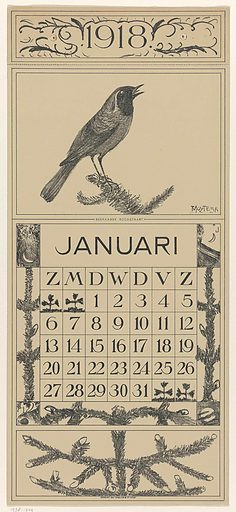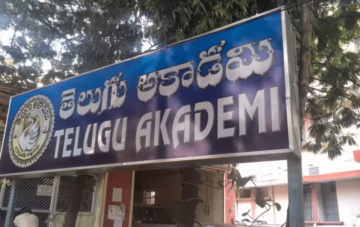
On March 15, the Patent (Amendment) Rules, 2024 were published in the Gazette of India, making crucial changes in the Indian patent regime. There will likely be more posts in the coming days that take a deeper look into these Rules. For now, on a quick skim, some of the notable amendments are:-
Revised Time limits
The Amended Rules revised timelines/ time limits for the following:-
- The time limit to file statements about foreign applications revised to – 3 months from the date of objections, from 6 months from the date of filing the application.
- The time limit to request for examination is reduced from 48 months to 31 months.
- The time limit to respond to the notice of pre-grant opposition is reduced from 3 months to 2 months.
- The time limit for the Examination Board to consider and submit its report on the post-grant opposition is reduced from 3 months to 2 months.
- Additionally, the Amended Rules also include a general provision to condone the delay in any filings mandated under the Rules by 6 months.
Certificate of Inventorship
- The Amended Rules make a provision for issuing a certificate of inventorship at the request of the inventor.
Amendments Concerning Requirement to File Information about Foreign Applications
- The Amended Rules limit the obligation to inform the Controller about corresponding foreign applications only when a statement of objection is issued against the application under Rule 24B or 24C.
- To obtain information about the processing of a corresponding application, the Controller may now rely on different databases or may issue a speaking order to the applicant to furnish such information within two months.
Amendments Concerning Pre-grant Oppositions
- The Amended Rules introduce a checking mechanism on pre-grant oppositions. The Rules now require the Controller to be satisfied that a prima facie case has been made by the pre-grant Opponent. If the Controller is not satisfied, then the opponent is given an opportunity to request a hearing after which the Controller can pass a speaking order admitting or rejecting the opposition.
- The Amended Rules impose a fee of INR 4000 and INR 20000 on natural persons and companies respectively, to file a pre-grant opposition under Section 25(1).
Amendments Concerning Obligation to File Working Statements
- The Amended Rules now require a patentee or a licensee to furnish a working statement only once every three years.
- The Amended Rules also remove the obligation to file information on revenue/ value accrued to the patentee/ licensee in the particular financial year.
Amendments Concerning Divisional Applications
- The Amended Rules clarify that a divisional application can be filed against an invention disclosed in a complete or provisional specification of a previously filed application or a further divisional application.
Interestingly, these Rules were published merely 5 days after India entered into a Trade and Economic Partnership Agreement (TEPA) with the European Free Trade Association (EFTA) wherein India agreed to somewhat similar provisions on foreign applications, pre-grant oppositions, and working requirements. These provisions were:-
- Article 13.3 of the IP Annex of TEPA wherein the parties agreed to give due regard to the publicly available information on the corresponding foreign applications.
- Article 11.7 of the IP Annex of the TEPA where the Parties are mandated to swiftly reject prima facie unfounded pre-grant oppositions as determined by the competent authority.
- Article 12 of the IP Annex to the TEPA, wherein the parties can seek information on the working of the patent only once after at least three years. Furthermore, under this agreement, parties cannot publish confidential information, including information on commercial value.
As said above, we’ll bring out more detailed posts on these issues in the coming days.
- SEO Powered Content & PR Distribution. Get Amplified Today.
- PlatoData.Network Vertical Generative Ai. Empower Yourself. Access Here.
- PlatoAiStream. Web3 Intelligence. Knowledge Amplified. Access Here.
- PlatoESG. Carbon, CleanTech, Energy, Environment, Solar, Waste Management. Access Here.
- PlatoHealth. Biotech and Clinical Trials Intelligence. Access Here.
- Source: https://spicyip.com/2024/03/patent-rules-published-a-quick-look.html
- :has
- :is
- :not
- :where
- 1
- 11
- 12
- 13
- 15%
- 2%
- 20000
- 31
- 48
- 5
- 6
- a
- About
- above
- After
- against
- agreed
- Agreement
- also
- amendment
- amendments
- an
- and
- Annex
- any
- Application
- applications
- ARE
- AS
- Association
- At
- authority
- available
- BE
- been
- board
- bring
- by
- CAN
- cannot
- case
- certificate
- Changes
- checking
- coming
- commercial
- Companies
- competent
- complete
- concerning
- confidential
- Consider
- controller
- Corresponding
- crucial
- databases
- Date
- Days
- deeper
- delay
- detailed
- determined
- different
- due
- Economic
- entered
- European
- Every
- examination
- fee
- File
- filed
- Filing
- filings
- financial
- following
- For
- foreign
- Free
- from
- further
- Furthermore
- General
- Give
- given
- hearing
- HTTPS
- if
- impose
- in
- include
- Including
- india
- Indian
- inform
- information
- into
- introduce
- Invention
- IP
- issue
- Issued
- issues
- issuing
- ITS
- least
- likely
- LIMIT
- limits
- Look
- made
- make
- Making
- March
- max-width
- May..
- mechanism
- merely
- months
- more
- Natural
- notable
- Notice..
- now
- objections
- obligation
- obtain
- of
- on
- once
- only
- Opportunity
- opposition
- or
- order
- out
- particular
- parties
- Partnership
- pass
- patent
- persons
- plato
- Plato Data Intelligence
- PlatoData
- Posts
- previously
- processing
- provision
- provisional
- publicly
- publish
- published
- Quick
- Reduced
- regard
- regime
- reject
- rely
- remove
- report
- request
- require
- requirement
- Requirements
- Respond
- Rule
- rules
- Said
- satisfied
- Section
- Seek
- similar
- skim
- some
- somewhat
- speaking
- specification
- Statement
- statements
- submit
- such
- swiftly
- Take
- that
- The
- then
- There.
- These
- this
- three
- time
- Time Limit
- to
- trade
- two
- under
- value
- were
- when
- which
- will
- with
- within
- working
- year
- years
- zephyrnet











